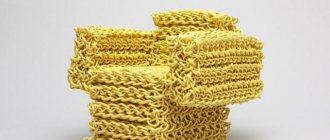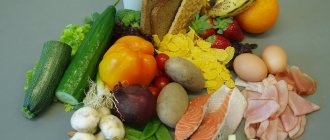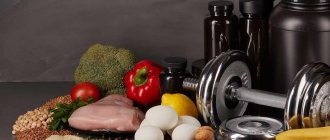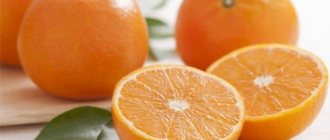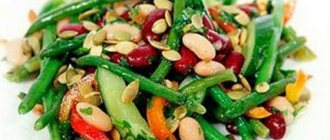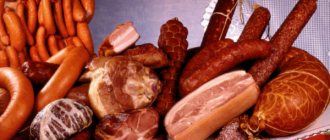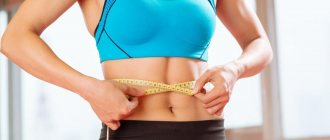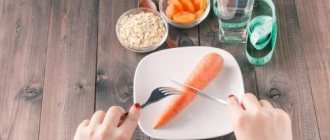BJU
For those who are completely unaware, I will briefly talk about the role of proteins , fats and carbohydrates (BJC) in the body.
The former are building materials for the entire body, and not just for muscle tissue. The fact is that throughout life, the cells of our body are constantly renewed: old ones die, new ones take their place. The inner walls of the intestine are renewed every five days, taste buds on the surface of the tongue - every 10 days, red blood cells, that is, blood cells - on average every 120 days, liver cells are renewed in 300-500 days in normal operation (taking into account the use of drugs, alcohol , fried, spicy, etc.) and in 50–70 days, if you go on a strict diet. So, for all these operations with the renewal of body cells, protein is used - it is a building material.
Fat is also used , and in a ratio of 50 to 50, saturated and unsaturated (roughly speaking, solid, such as lard, and liquid, such as vegetable oils, respectively). The membrane shell of all cells in the body consists of approximately 30% fat, the brain - 50-60%. Fats are necessary for the production of many hormones, and they are especially important for women. It is the sharp and strong reduction of fat in, excuse me, the mostly stupid women’s diets that leads to health problems for these ladies.
Fat also forms protective layers for internal organs and delivers fat-soluble vitamins A, D, E and K to the body. Another important function of fat is to provide us with energy, and not only in preserved form in the form of deposits on the stomach, sides and other loin parts of the body . Fat can be a source of energy here and now, that is, replace carbohydrates.
Carbohydrates, in turn, only serve as fuel for the body, that is, they are the main supplier of energy, so to speak, the easiest for the body to use. If there are carbohydrates in the diet in sufficiently large quantities (1.5–3 g per kg of body weight per day), then the body will primarily use them.
Using sweeteners while dieting
If you are on a high-fat diet, you can add stevia to your meals. The sweetener contains steviosides. These unique substances contain no calories. Therefore, stevia should be considered the only non-calorie sweetener.
The sweetener contains the following substances:
- vitamins;
- essential oils;
- amino acids;
- pectins;
- minerals.
Stevia helps lower blood pressure and increases resistance to infectious diseases. They provide anti-inflammatory effects and normalize the content of female hormones.
Stevia also contains flavonoids. These substances help increase the strength of the walls of blood vessels. The extract obtained from stevia leaves can be consumed even by patients with diabetes. Its glycemic index is very low.
Erythrol is a 100% natural sweetener. It is extracted from plants rich in starch. Erythrol is approved for use by people who have been diagnosed with diabetes.
Isomaltooligasaccharide is a sweetener of organic origin. It is obtained from corn starch. The sweetener is an excellent prebiotic. It has a positive effect on intestinal function. The sweetener helps relieve constipation.

Not quite a keto diet, but not a classic low-carb diet either.
As you can see, protein is irreplaceable, fat is also essential, but carbohydrates can be done without them. In theory. Or at least minimize the amount of this macronutrient as much as possible. This is supported by the fact that for thousands of years the human body lived mainly on fat and proteins, and carbohydrate foods became widespread only in the last millennium with the active development of agriculture, and became extremely accessible almost in the last couple of centuries.
That is, our body, in principle, is not designed to consume large amounts of carbohydrates and, in fact, most of the diseases of modern humans are associated with this. Although it is worth adding trans fats here, that is, margarine. We'll talk about it in more detail in the future. So, after reading everything I briefly wrote about above, I finally decided to radically reduce the amount of carbohydrates in my diet. Radical and sharp.
In the past, I already tried to gradually reduce carbohydrates, going down to 150 g per day or so, but in this state I did not feel very good, my mood was below par and I was constantly hungry. A sudden transition to the most low-carbohydrate diet is also clearly not suitable for everyone, but here I am writing about my experience. Everyone's body is different - you need to understand this.
So, there is a so-called keto diet , which involves a minimum amount of carbohydrates, which can only be obtained from green vegetables, cheese, and nuts. That is, you can’t even eat tomatoes. Titled Russian bodybuilding professional Sergei Shelestov , I recommend watching:
There is also an LCHF diet with less strict restrictions on carbohydrates (any vegetables, nuts and nut butters, etc. are allowed), but it is also undesirable to consume more than 5-10% of carbohydrates from the total amount of macronutrients. Although, this is not even a diet, but rather nutritional principles, which stand for Low Carb High Fat (low carbohydrates, high fat). That's why she got me interested. Firstly, you can switch to it, as in the case of the keto diet, abruptly. Secondly, I’m not yet ready to live on just cabbage, green beans and broccoli when it comes to vegetables.
The point of all these dietary manipulations is to force the body to enter a state of ketosis, when the energy of ketone bodies . They, in turn, are formed during the breakdown of fat.
In the end, both diets are quite similar, but LCHF is slightly less restrictive. In both cases, we eat mainly protein and fatty foods, excluding any sweets, flour products and even porridge with pasta. At first glance, this all seems crazy. Especially against the backdrop of the almost complete lack of food culture among the majority of citizens of the post-Soviet space (we eat everything with bread, more soups, etc. - I don’t blame, but I don’t support either). But in reality the devil is not as terrible as he is painted. Let's move on to specifics.
PS For those interested in reading more about LCHF, there is a dedicated website.
Don’t pay attention to the fact that they mostly promote their store, the main thing is that there is a lot of useful information and interesting recipes.
Do you dream about something that is prohibited by the diet? Does it have some kind of strict system of prohibitions?
Keto discourages sweet fruits. I love mangoes very much and sometimes allow myself it if I can buy the perfect fruit. This year there were already three mangoes, for example. I also sinned with the delicious lychee fruits a couple of times. I don't regret a single thing.
One time I really wanted bread, but I baked my own keto bread, which the whole family liked. Recipe in the link above.
High-carbohydrate foods and any sugar are, of course, strictly prohibited. I’m not drawn to them, it’s funny to remember how much I loved macarons. Sweeteners are also not suitable for everyone. I don't drink Coke. If I doubt any ingredient in a product, I don’t eat it.
More than three weeks with a minimum of carbohydrates
Since I decided to switch to LCHF on Monday, September 21, and made the decision late in the evening on Sunday, September 20, I didn’t have much time to prepare. As a result, on the first day my diet was very meager: eggs, chicken fillet, cucumber and tomato salad, cheese. Moreover, I was also quite undernourished, and it was a training day, and a hard one - legs. On the other hand, last weekend I went on a massive binge and seriously went overboard on calories. So he compensated for the uneaten Sunday gluttony.

The macronutrient breakdown looks like this:
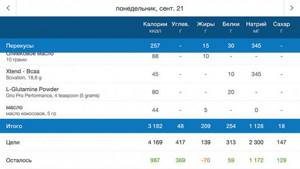
On the first day, in general, the condition was normal, only in the evening it somehow became cloudy, or rather foggy. An incomprehensible state is neither good nor bad. Although, after a powerful workout and a sudden change in diet, this is normal.
Most of all, I was afraid that due to the lack of glucose in the usual amount, my brain would begin to dull and I would not be able to work normally. And all the work is connected with mental activity (no matter what they say, “everyone can write articles” - try it first before judging). In general, on Tuesday I was really stupid, but this was expressed not in a decrease in intellectual abilities, but in forgetfulness.
So, I forgot to take my wife’s training things with me to the gym (she goes there right after work), and only took water for her, for some reason deciding that my beloved took everything with her (although she had never had such a practice before). During the training process, one exercise simply flew past my consciousness and in the end I thought that I needed to do another one, while in fact all six planned movements were completed.
On Wednesday, I also felt like I was in a fog, although I was working normally, and I didn’t have any special complaints about some really cloudy state. By the way, glycogen reserves in the muscles and liver (formed from carbohydrates and provide energy for the body to function) are usually used up within two days if you consume very few carbohydrates.
On Thursday morning , the fourth day of low-carb, I felt as if my body had been turned on. Some kind of switch went off inside and the body began to work as before - clear consciousness, good health, no state, as if you were in a fog. As I understand it, the body did enter ketosis mode and began to actively use ketones as an energy source. Life was getting better, as was the diet .
The remaining three days of the first week on a low-carb diet went well physically. I can only note the bad sleep, but in the first three days it was clearly due to the fact that I had a slight cold (no fever or cough, but I felt bad in my throat). And then some life difficulties happened, which could also negatively affect sleep. In any case, since Monday of the second week on LCHF, I have already slept normally, and my diet has finally formed.
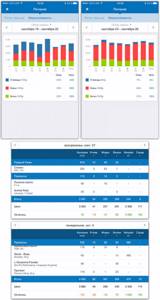
How has the diet changed in terms of carbohydrate intake and the amount of macronutrients in the diet now?
What were the changes in your body over the week?
It took 4–4.5 liters of water. That is, on Sunday morning, September 20, I weighed 107.5 kg , and on Monday a week later - 103 kg .
Why exactly did the water go away? Muscles do not burn so quickly if the diet is high in calories and there is physical activity. Fat also does not disappear at such a speed, no matter what citizens who are losing weight or dreaming of losing weight may think. But water is lost once or twice, since carbohydrates retain it in the body (4 g of water for every gram of carbohydrates received with food), and since there are no carbohydrates, then there is no additional water. In addition, in the first couple of nights I ran to the toilet very actively. In the second week, the weight stabilized at 102.5–103.5 kg.
What is the general feeling?
I’m not particularly drawn to sweets, flour, or candy. The reason for this is the absence of hunger in principle. And this despite the fact that on average I began to eat 4 times a day (instead of six, or even seven, if with snacks), of which one is a snack such as coffee and cream (80–100 g of 35 percent). Although on training days I drink an additional portion of protein an hour before training.
In general, I started all this to increase work productivity. The fact is that in the second half of the day I was literally exhausted - I fell asleep, I had to work through force. If you sleep for 30–40 minutes during the day, you can seem to perk up, but often there was the opposite effect. The reason for this could be insulin spikes due to carbohydrates (especially after oatmeal or rice) when blood sugar dropped below average. With LCHF nutrition, there are no sharp jumps in blood sugar levels, which means it doesn’t make you sleepy. This is also the reason for the lack of hunger combined with the rather slow digestion of protein and fatty foods.
So, I really don’t feel overwhelmed in the second half of the day, my head remains clear, you work calmly and at ease. Yes, tiredness and tiredness, of course, are felt at the end of the day, but not as critical as before. That is, you can write something sane at 9 o’clock in the evening, and at 10, and even after a hard workout, without eating chocolate or other sweets for this.
It is also worth noting the onset of peace in the gastrointestinal tract (GIT). Sorry for the details, but now there is no feeling of bloating, heaviness, no “bloating or sausage.” Although I thought that highly fatty foods should do just the opposite (at least a heaviness in the stomach, but it doesn’t). It took about a week and a half for the gastrointestinal tract to adapt to the new realities. Nothing extreme, like intestinal upset, but there were some nuances. Non-critical, so I won't focus on them.
What's with the training?
Strength has not decreased much, nor has the volume of training, except that muscle failure occurs a little faster and more sharply. I think this is due to the fact that the body is still adapting to new realities in nutrition. For example, with a large amount of carbohydrates in my diet, I squatted in a Smith machine (barbell on the shoulders) with 120 kg for three working approaches of 12 times, and on a low-carbohydrate diet the same working approaches turned out to be 12+12+8 times.
The pumping has also gone away, there is no fierce drive, when there is a feeling that the muscles are almost tearing apart from the blood surging into them. Yes, you feel the load, there is a burning sensation in your muscles, but you just work without much emotion. This is a minus at the moment. Maybe the reason is also related to the adaptation of the body.
But the ligaments and joints feel more comfortable. Previously, I didn’t have very much fat in my diet, at least saturated fat, maybe this is the reason - there just wasn’t enough of it.
What are the changes in build?
This is the most interesting thing. Became much drier. Changes are observed almost every day, although it was especially noticeable towards the end of the first week. Now everything has stalled a little, which is natural. As mentioned above, fat does not burn instantly, and the body adapts. Here is a photo for comparison. The first was done not before the diet itself, but a couple of months earlier, but I remained in approximately the same state before the start of the experiment, since I did not change my diet and training regimen much. The second photo and the third below it were taken on October 6:

I can’t say that it’s a great achievement, but for two weeks it’s quite good, it seems to me. At least, I have never achieved this level of relief before. But this photo was taken on October 11, Sunday:

Even in five days there are changes, although not as significant as in the first couple of weeks. As I wrote above, the body adapts to everything. For me personally, the result already achieved in terms of dryness is quite enough. I’m not preparing for a competition. If you can maintain this level of fat without much suffering and slowly build up relatively lean muscle mass, why not?
Does this diet have contraindications and who should not follow this diet?
What contraindications might there be for giving up sugar and flour? I think none. But this is a good question, and I am not a doctor and cannot list categorical contraindications. I think anyone who is relatively healthy can try keto on their own, but those with serious illnesses should go to a doctor for advice. And it’s better for several, and it’s better for those who have keto experience. By the way, keto is easy to personalize and customize by excluding some ingredients. Some people don’t consume dairy at all, others are allergic to nuts. Everything is individual.
I was surprised to learn that even people with cancer improve their well-being on a keto diet (you can read about this in the book “The Cell on a Diet” by Joseph Mercola), and that it is used in medical practice to treat neurological disorders and prevent Alzheimer’s disease. Read about this from David Perlmutter in Food and the Brain.
Beauty Halle Berry even reversed her type 2 diabetes on keto. At Vasily Generalov’s master class on Ketolifestyle, which I recently talked about, I remembered the idea that the potential of the keto diet is still being studied. I think it’s the same with contraindications. I am following information on the topic.
Want to talk about your personal keto experience, good or bad? I'm waiting for you in the comments. There is also mail, Instagram, Facebook, welcome! If you need to tell me more about my experience, about dietary supplements or my keto mistakes, write. Thank you for your attention! Fat everyone!

Diet at LCHF
For me, the worst thing in nutrition is the repetition of dishes throughout the day, such as “we eat rice and breast meat three times, or we stomp on eggs from morning to evening.” Therefore, I always try to choose different dishes that I can easily eat every day.
Previously, it was oatmeal in the morning, porridge + meat for lunch, casserole in the afternoon (with cottage cheese, oatmeal, protein and sweetener), protein an hour before training, coffee + a piece of chocolate (20-30 g) 30 minutes before training, meat + porridge/pasta after training, sometimes cottage cheese just before bed (30–60 minutes before). With the new diet, the diet, of course, changed. Below I will describe what I usually eat by meal (first, second, etc.)
- 5-6 boiled or fried eggs (fry with a minimum of olive oil in a good frying pan so as not to burn) + 200-250 g of salad (cucumbers, tomatoes, bell peppers, onions, 20 g of olive oil, 10 g of natural lemon juice).
- Coffee + 100 g of 35% cream (it’s like village sour cream, which you stick a spoon into and it’s worth it).
- Oven-baked chicken thighs (250–300 g) + the same salad as for breakfast (same quantity).
- Low-carb casserole (cottage cheese, a little coconut flour, nuts, eggs, bifilife/sugar-free yoghurt, sweetener - I’ll tell you more in the article with recipes) or cottage cheese mixed with cream and sweetener in a blender (it turns out a kind of curd dessert).
Sometimes I can drink a serving of protein an hour before training, but it depends on when I have lunch (meat and salad). If 3 hours before training, then I drink, if a couple of hours before, then I don’t drink, because I just don’t feel like it, and I don’t want to load my stomach before training and stop the digestion process an hour before it. From time to time I add 40-50 grams of hard cheese to breakfast, lunch or dinner, or even to all three meals. Instead of cream, I can eat 30-40 grams of natural peanut butter without fillers like sugar or anything else. It happens that I just throw in a spoonful of pasta, especially if I feel like I’m not eating enough that day.
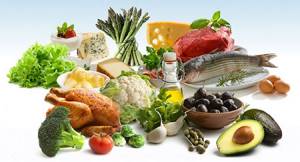
As a way to relax and if I still have a reserve of calories, I can treat myself to salted peanuts or with some flavoring, such as bacon (I know that chemicals are not good, but I’m a little bit - at least some kind of yummy). I also really like to eat at the movies (I’m such a pig, one of those people who crunches and slurps during screenings, although I still don’t slurp, but I rustle the packaging and crunch). I usually go to the cinema on the weekends; before, it was a day of gorging, so I used salted crackers, jelly candies (I have an unhealthy weakness for them) and other carbohydrate things. Now it can be dried meat like basturma, dried and salted squid or some kind of fish, hard cheese, nuts and some kind of energy drink based on a sweetener, or cola/pepsi light. It goes well with the cheerful movie.
Authorized products
A high-fat diet involves including the following foods in your diet:
- butter;
- fatty meat purchased from farmers;
- coconut oil;
- fat sour cream, cream, cottage cheese;
- lard;
- boiled pork;
- bacon;
- various types of fish (herring, salmon, salmon);
- seafood;
- eggs;
- balyka;
- ham;
- avocado;
- mushrooms;
- homemade mayonnaise;
- sour berries;
- nut butters;
- lettuce;
- sour berries;
- olives;
- olives;
- products that saturate the body with fiber (for example, bran).
Partially restricted products include:
- dark chocolate containing at least 70% cocoa;
- fruits;
- vegetables rich in starch;
- tea;
- coffee;
- low carb pasta;
- pickled vegetables;
- baked goods made from almond or coconut flour;
- dishes that contain pumpkin.
What are the difficulties and nuances?
Does this diet or nutritional principles bother me? No, it doesn't really hurt. Firstly, there is practically no feeling of hunger, only when it’s time for the next meal. Thanks to this, there is no irresistible desire to break out and binge on all sorts of carbohydrate delicacies, and there are a lot of them at home. After all, I have children, and my wife has not yet been inspired by my experiment with a carbohydrate-free diet, although she is slowly looking into it. Look, he will stop eating carbohydrate foods after lunch, and then he’s not far from LCHF.
So there are candies, bagels, and cookies in the cabinets. The main thing is that they do not catch your eye shortly before eating, that is, just when hunger still wakes up. On the other hand, in this case, the result, clearly visible in the mirror, helps me control myself.
Problems may arise on the road or on business trips. Fast food restaurants rarely offer purely no-carb or low-carb options. But in restaurants there is no problem with this, but eating in restaurants can lead to ruin.
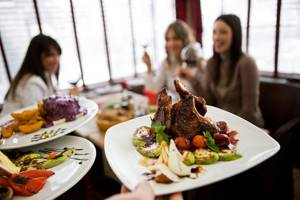
The other day I went to the CEE 2015 exhibition, took with me 250 g of basturma and 200 g of hard cheese, and another 100 grams of peeled seeds - I lived quite a normal day, plus at the event itself there was lunch for visitors (zero day for partners and journalists, so people were fed) and there we managed to get some carb-free turkey rolls. So, in principle, you can live even on business trips. The main thing is to prepare.
I also strongly recommend drinking more water, or remembering to consume the recommended 2-3 liters per day. We are talking about clean water, and not about tea, coffee and other liquids, which, in fact, are solutions and their processing and removal of decay products also requires clean water, which also acts as a solvent in our body. Thirst is much less on a low-carb diet, so you may forget to drink, and this is not good. I usually drink 300–500 ml of water between meals.
Preliminary result
I weighed myself on October 13 in the morning on an empty stomach and got the result of 101 kg (height - 190 cm). Total -6.5 kg for three weeks of nutrition according to the principles of LCHF. And this despite the fact that I was not particularly fat when I started the experiment. True, most of the lost weight is water, which subsided in the amount of 4 liters in the first week of the diet. On the other hand, 2.5 kg of fat in three weeks is also not bad, although it is too fast. Ideally -0.5 kg per week, obviously you still need to work with your diet.
Speaking of diet. In terms of total calorie content, it averaged 3600–3700 kcal/day:
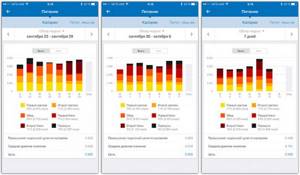
In terms of pure calories (that is, minus physical activity and training, for which additional calories were spent) - 2800 kcal/day , which is slightly (about 300 kcal) higher than my basic costs necessary to support vital functions, taking into account sedentary work, if calculated by Mifflin-San Jeor formula ((9.99 * weight (kg) + 6.25 * height (cm) – 4.92 * age + 5) * 1.2).
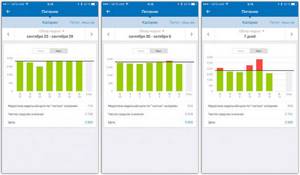
Thus, with an average amount of protein of about 230 g per day (2.3 g per kg of body weight) and the indicated calorie content, there are enough resources for the restoration of muscles and other cells of the body and there is even a small reserve.
But this is only in theory. I'll see how it turns out in practice. The weight continues to fall a little, although the muscles do not burn much (on the contrary, the drier they become, the cooler they look), which is visible both visually and by overall strength. On Monday, during leg training, I quite confidently squatted with the usual 120 kg 10-12 times in working approaches.
When the body comes to its senses after a sharp change in diet, finally gets used to the new “protein-fat” realities with virtually no carbohydrates (judging by what I read, this takes about a month), and the weight stops falling, you can try to start gaining training load. In the meantime, I am personally quite pleased with the results. Let's see what will happen next.
